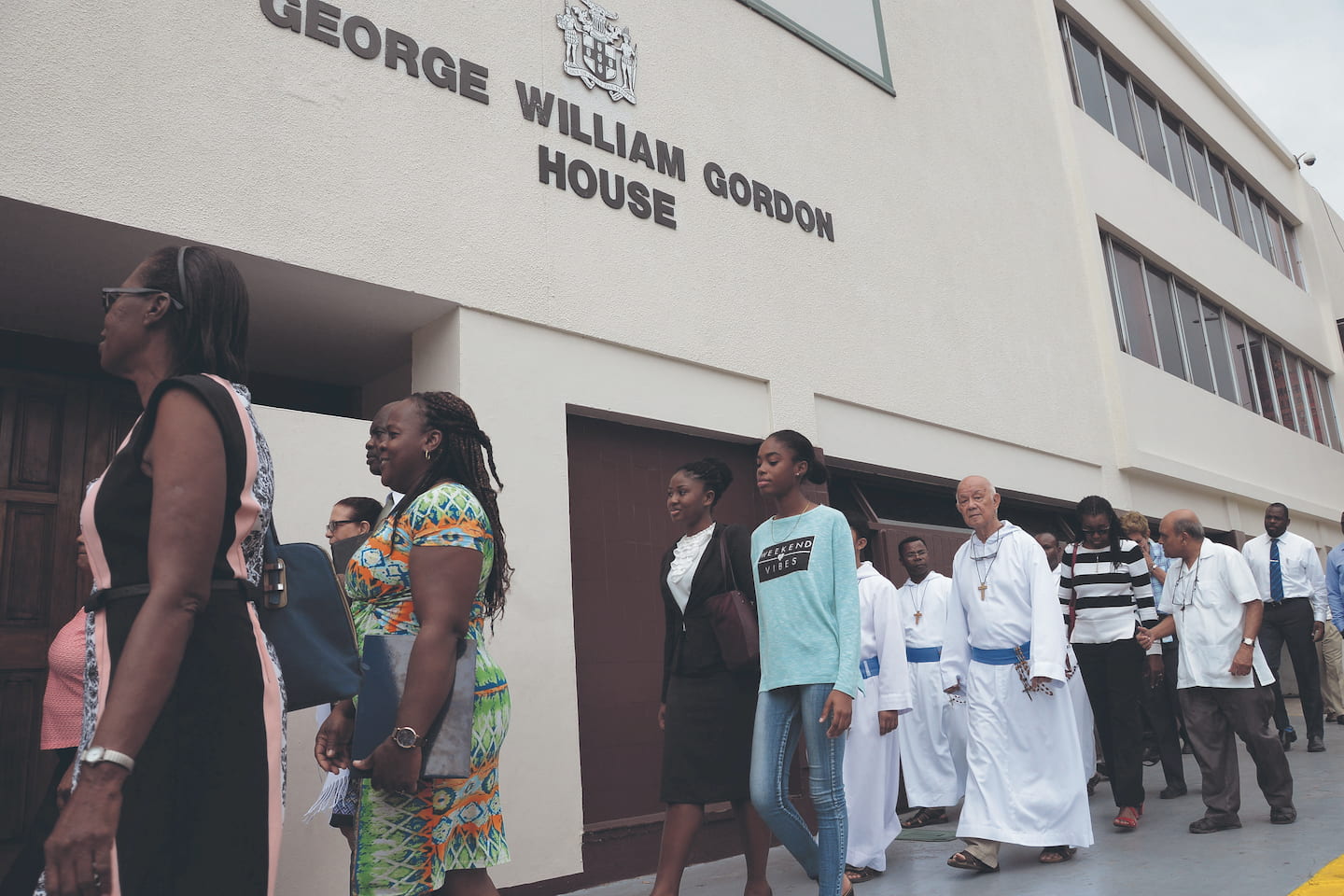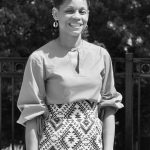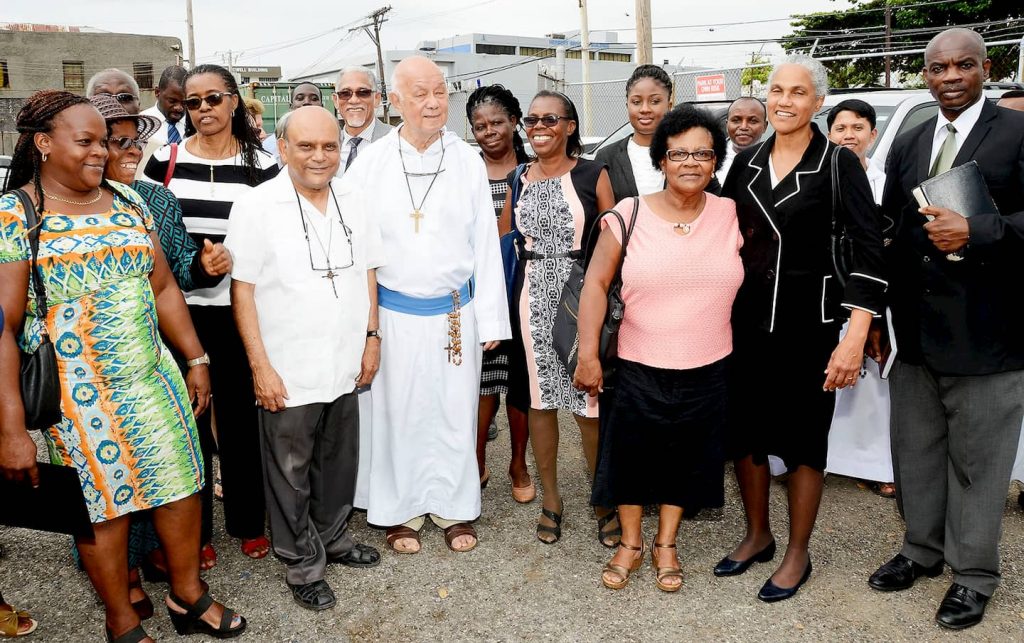Women in Jamaica are under attack and it is not clear on which side our government sits. According to UNdata, Jamaica showed up second in the world in intentional homicides of women in 2017, but there is no “state of emergency” for women. Indeed, violence against women is taken for granted. We should recall that in parliamentary debates surrounding the passage of the Domestic Violence Act (1995) there was ambivalence and even hostility to the protection of women by the state. Then Member of Parliament Horace Dalley told the house that men complained to him that “man cannot talk at home again”. “Man have to now just come home and put down him money on the table… . The man them will start singing for dem supper,” shared Dalley, according to Jamaica Hansard, January 24 – March 28, 1994. “The idea of a man having his house as his castle no longer exists,” he concluded. This was a grave reading of the act and its potential to disempower men.

Church leaders prepare to march on Gordon House to protest against a motion moved in Parliament to decriminalise abortion on January 30, 2019. – (Ian Allen/Photographer) 
Major Richard Cooke (left) and Alvin Bailey, bishop of the Holiness Christian Church, march to Gordon House. – (Ian Allen/Photographer)
The maintenance of anti-abortion legislation is in sync with church-defined notions of how women should behave and is harmful to women who want abortions and important to men who wish to control women and their bodies. It essentially denies women freedom and autonomy. We must as a nation ask how women’s needs figure as priorities for the state.
The criminalisation of abortion, the stigmatisation of prevailing family structures in Jamaica, especially female-headed ones and the promotion of marriage are parts of the construction of gendered power in which male dominance prevails. This was heard in debates on the Matrimonial Causes Act of 1988 which sought to ease the process of divorce, which privileged marriage as a respectable family form, and is a view that has figured as especially important for Prime Minister Andrew Holness.
In the 1988 debates, J.A.G Smith concluded his introduction of the Bill by stating: “I do expect that this Bill will necessarily make marriage more continuous but I sincerely hope it will do nothing to necessarily abbreviate or bring the institution into anything other than we would really like for that institution which we regard so highly,” according to Jamaica Hansard, January 4 – April 26, 1989.
The house noted its approval with applause. A. Johnson held that he hoped the Bill would receive publicity so that “people would get out of the whole habit of being afraid of marriage and not entering into it in the numbers which are needed if we are to have more and better families properly speaking in our shores”.
In the midst of recent parliamentary sittings of the HRSDC, Prime Minister Andrew Holness told the nation that he had been following the discussions on obeah, abortion and sexuality and would not be distracted by them. It is important to note that the legislation mentioned was passed in colonialism to control blacks. Holness declared: “If you put them together, it could very well seem to be an assault on the traditional values of the society and how we see our traditional institutions. This Government that I lead is committed to preserving the institution of the family as we have understood it, and our parents have understood it”. This begs the questions: What does the Prime Minister think the traditional values and institutions of the society are? and, Are women seeking to control their bodies among the Jamaicans that the Prime Minister and his government represent?
The presentation of the nuclear family of husband, wife and children, as an ideal, contrasts with the ways in which women’s reproductive decisions and motherhood have been used to explain poverty and criminality in Jamaica. Female-headed families are understood as insecure and not able to bring up “good” citizens and in that context, women who are unmarried and procreating share a significant amount of burden in explanations of “national crises”. When the nuclear unit is presented as an ideal and the state stigmatises dominant family structures in Jamaica, the middle-class male, who controls the state, emerges as especially powerful. In that vein, the prime minister argued that the debates on abortion etc. were seeking to derail him from the real and necessary goal of economic growth. The bid for growth here establishes a hierarchy of needs in which women’s reproductive freedoms have not been deemed important.
With the burdensome nature of childrearing, enhanced in the context of high levels of poverty in Jamaica, the stigmatisation of abortion and of women who are thought to fail to be “good” mothers, reproduction and motherhood are powerful platforms for deepening women’s alienation from power. Women are impacted by how the nation imagines them. They aspire for respectability even while they desire for reproductive freedom. They seek abortions at a significant rate in Jamaica and secrecy around abortions though harmful to women may fulfil their desire for respectability given the stigma attached to it. This may also provide an explanation of why they have limited voice on the issue. Their voices pale in comparison to the outsized influence of the church.
The church has shown a significant capacity to mobilise the public on matters of interest to it and it has emerged as a constituency serving as an obstacle to women’s freedoms. At the same time, the state has been able to avoid contending with women as a distinct constituency because of women’s limited mobilisation since the call for submissions to the HRSDC.
Women do not control public policy or its effects on their bodies and their families but they should. The state must thus abolish laws that criminalise abortion. Further still, Father Richard Ho Lung has unwittingly given us the answer to how women and the nation can be better protected: if women paying for abortions will call down the wrath of God on the nation, the state must move with haste in making them available to women for free.
Dr Maziki Thame is an assistant professor of political science at Clark Atlanta University.
Viewpoints is committed to expanding its range of opinions and commentary. Share your views about this or any of our articles. Email feedback to viewpoints@gleanerjm.com.









